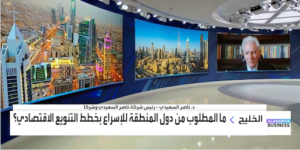Egypt’s Failed Revolution
Two years and six months following the onset of the Arab firestorm, Egypt is back on the streets, its youth filling Tahrir Square. It had ousted Hosni Mubarak, held elections and was deemed one of the “successful” “Arab Spring” countries to use the Western-centric term coined by optimistic foreign observers.
The past two weeks saw a “soft coup” and a new leadership assuming power, with the promise of a referendum on yet another revised constitution and parliamentary elections promised in 2014. Will this become a déjà vu scenario?
The sense of euphoria and bright promises following the ousting of Mubarak was rapidly confronted with the reality of dismal performance. Unemployment in the past year under Mursi’s rule rocketed to 13.3 per cent. Eight out of every 10 jobless Egyptians are under 30, and more than a quarter of them hold university degrees or higher. Some 750,000 young Egyptians join the labour force every year. With no job creation over the past two years, one and half million joined the ranks of the frustrated unemployed.
Manufacturing output, tourism and the related services sector, investment – domestic and foreign – all plummeted. Core inflation grew to eight per cent, and foreign reserves fell to $14.9 billion as of May 2013, which included $11.5 billion financial assistance from Qatar, Libya, Turkey and Saudi Arabia. The budget deficit – the reduction of which was a major point of contention in negotiations for the $4.8 billion loan from the IMF – is running at 15 per cent of GDP, with untargeted food and fuel subsidies accounting for the bulk of the bill. The Egyptian pound fell from 6.7 against the dollar to a record 7.4 during the “Mursi” year – leading to a politically and economically damaging rise in food prices in a country that imports almost 70 per cent of its food needs.
While Mubarak’s Egypt had been growing and economic reforms were introduced, there was little or no trickle down or ‘pull up’ effect. Growth was not inclusive and poverty was growing. The greater the degree of income and social inequality before transition, the greater the likelihood of violence and conflict to resolve those inequalities.
Mursi and an inexperienced government focused on a Muslim Brother socio-political agenda that lacked internal consensus instead of addressing long-standing and growing economic and social grievances.
The new government led by Hazim El Beblawi, a respected economist with a conscience, should aim to form an inclusive government in order to set Egypt on a path of political stability and the rule of law. It will have a short honeymoon: managing revived expectations will be a daunting task.
Egypt and other countries of the Arab firestorm are going through a historical transition period and need to deal with major fault lines: the role and relationship between Islam and the State and the role of the military and security services in politics. We need a clear call for secularism to achieve long term political stability. Similarly, the experiences of successful transitions are ones where the army and security forces are firmly parked under civilian rule and authority.
The GCC countries of the UAE, Saudi Arabia and Kuwait in a vote of confidence have together pledged $12 billion in aid for Egypt, partly in grants and as cash deposits at the Central Bank of Egypt. While such regional financial assistance will provide temporary relief to the Egyptian government, it is only palliative care. The Arab region has so far failed to provide a coherent road map or a vision for the future for the countries in the firestorm. We lack institutions for collective action, implying that political transitions could take longer and the outcomes highly uncertain.
The GCC should take the lead and establish an Arab Bank for Reconstruction and Development (ABRD) similar to the EBRD to assist the countries of the Arab firestorm and those that were destroyed by war and violence like Iraq, Lebanon, Syria, Sudan and others. An ABRD should be part of a new vision for the Arab world.
[This opinion piece was published in Gulf Business Aug 2013 issue & was also posted online here]
Whither Egypt? Opinion piece – Gulf Business, Aug 2013
24 July, 2013
read 3 minutes
Read Next
TV and radio
Interview with Al Arabiya (Arabic) on economic diversification, 17 Apr 2024
In this interview with Al Arabiya aired on 17th April 2024, Dr. Nasser Saidi discusses
18 April, 2024
media page
Comments on Saudi Arabia’s economic diversification in Al Arabiya News, 8 Apr 2024
Dr. Nasser Saidi’s comments appeared in an Al Arabiya News article titled “Saudi Arabia’s economic
9 April, 2024
media page
“Economic diversification is the GCC’s top priority”, Op-ed in Arabian Gulf Business Insight (AGBI), 3 Apr 2024
The opinion piece titled “Economic diversification is the GCC’s top priority” appeared in the Arabian
4 April, 2024




